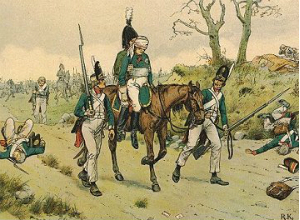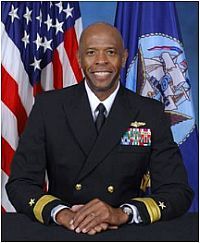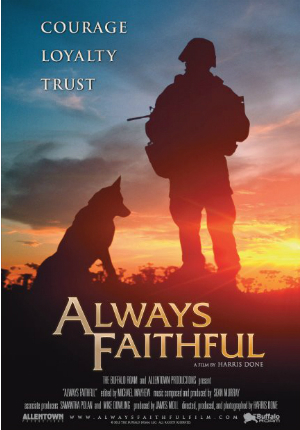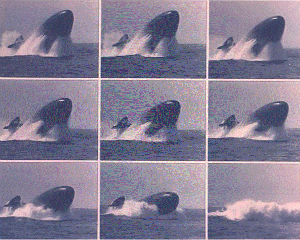Thomas E. Ricks's Blog, page 108
May 14, 2013
Colin Kahl's feisty new report on how the U.S. might contain a nuclear-armed Iran

Colin Kahl's new report on containing a nuclear Iran (done with a couple of his homies) is
long, but worth it. I was asked to suggest cuts to a draft and honestly
couldn't find any. It is the best thing I have read about Iran policy in a long
time.
The problem is
that much what he is recommending for containment is expensive stuff like
forward-deployed missile defenses and conventional forces, and defense budgets
are going in the other direction. He also wants us to get more involved in
Syria and in attacking Iranian networks of "covert operatives, surrogates and
proxies" across the region.
The British military's reading list

It is interesting. I'd like it even if I didn't have a book on it.
Mission command -- as explained in 'Military Review' some 27 years ago

Military Review had a pretty good understanding of
mission command back in 1986, when it ran an article by Daniel J. Hughes titled
"." (The article itself starts on p. 66
of the linked issue.)
To understand how
the German military worked, Hughes writes, it is crucial to understand that "by
current standards, no ‘system' actually existed. Improvisation was the key to
the Prussian-German approach which regarded the conduct of war as an art -- a
free, creative activity with scientific foundations."
Something else I
didn't know: Use of the word auftragstaktik was
"exceedingly rare" in the Germany army of World War II and before.
Here's more.
May 13, 2013
The real scandal of Benghazi is the plodding caution of U.S. military leaders

By Bing West
Best Defense guest commenter
Re Benghazi and the
military (a matter of much lesser import than the deceptive talking points): On
ABC on 12 May, George Will and retired General Cartwright excused the military
by saying 10 hours was not enough time to react. The general said it takes up
to "a day or two" to arm an F-16, file flight plans, arrange for refueling,
etc.
Therefore the solution
is to pre-stage the right kinds of forces, which requires a much larger
military and a knowledge beforehand about the location and severity of the
threat. By this reasoning, we do not have general purpose forces;
we have special purpose forces.
Benghazi thus raises the
question: Do we need more forces staged around the world or do we need senior
officers who can respond to emergencies outside their normal checklists?
Last week's congressional
testimony included two new revelations. First, four Special Forces soldiers en
route to Benghazi to help our wounded were ordered not to go by a Special
Operations officer in Stuttgart. Not only did that manifest being afraid to
take a risk for your beleaguered comrades, it also raised the question of
authority in the chain of command during battle. What is the authority that
permits an officer thousands of miles away to override the commander on the
ground?
Second, Mr. Hicks
testified that Secretary Clinton approved, at about 8 p.m. Washington time, the
evacuation of the embassy in Tripoli, due to terrorist threats. That was a
dramatic, escalatory decision. It is unknown whether the president or the secretary
of defense was notified.
In the event, the U.S.
military took no new, immediate action, even though the embassy was being
evacuated in addition to the chaos at Benghazi. The military has justified
itself by saying the battle was over by the next morning. But no human being
could predict the night before when the battle would end. That the embassy in
Tripoli was not overrun was a matter of fate/luck/enemy decisions that had
nothing to do with the prescience or actions of the Pentagon staff. The
tardiness of U.S. forces was a failure to improvise, which in turn is a basic
test of leadership in battle.
One question illustrates
the inertia: Had it been President Obama who was missing in Benghazi, would the
military have taken only the same actions and later offered the same rationale;
to wit, "we knew the battle would be over in 10 hours, (inside our OODA loop)"?
The military at the
highest level must examine its ability to improvise, and not rely on the enemy
to give us "a day or two" to prepare.
Bing West
, a former assistant secretary of defense and combat Marine, has
written
seven books
about ground combat.
Michael Howard argues that democracies actually are more inclined to go to war

After
years of hearing how democracies are inclined to be
peaceable, I
was surprised to read this in Sir Michael Howard's War
and the Liberal Conscience:
Democracies,
from France at the end of the eighteenth century to the United States in the
middle of the twentieth, have failed to live up to the expectations of
eighteenth-century liberal thinkers. On the contrary they have repeatedly
displayed a bellicose passion reminiscent of the worst years of the Wars of
Religion....The doctrine that peoples if left to themselves are naturally
peaceable, like its converse that they are naturally belligerent, begs far more
questions than it answers.
'Body parts': A phrase I have come to hate

It
occurred to me that the characteristic phrase of our time may be "body parts."
Journalists just love to use it, most often I think in reporting on car bomb
explosions. That strikes me as lazy -- why not say "arms, legs, heads, jawbones,
and so on"? (Unless, of course, you can't tell what they are.)
May 10, 2013
An unrecognized career path? Retire at 0-5 or 0-6, and then go on to have an impact

I was having lunch with
a smart Navy captain recently and we began talking about all the people who
have served 20 or more years, left as Army or Marine lieutenant colonels and
Navy captains and then gone on, in "retirement," to have a much greater impact
on the shape or uses of the U.S. military than they did while in uniform. In
the course of 30 seconds, these names were mentioned:
Col. Bob Work (my other new boss,
by the way)
Col.
John Collins (three
full careers, the third
perhaps the most influential)
These are just the
ones that came immediately to mind. I am sure there are many more. (Your
nominations welcome.) Their commonality is three-fold, I think: First, they
were independent thinkers. Second, they had the best interests of their
services in mind, even at the expense of further promotion. (That is, they did
their duty.) Third, as the Navy captain said, "they knew when to get off the
merry-go-round." After all, everyone who lives gets told to leave the military
eventually. Why not go when you still have ideas and the energy to develop
them?
So, as a friend points
out, the lesson seems to be that if you want to be a CEO, leave the military as
a lieutenant or captain. But if you want to affect the shape and strategy of
the U.S. military, leave as a smart, hard-working, well-read, well-educated
0-6.
Interesting job moves: From NSA's 'tailored access' office to PACOM intel

I
always read the Pentagon's flag officer announcements, mainly to see if someone
I know has gotten an interesting job. (It is nice to see people I knew as
majors are now making three and four stars. Unfortunately, it also reminds me
that people who joined the military when I started covering the Pentagon are
retiring.)
In
this case, I don't know Rear Adm. Metts, but I sure found the move of this
information warfare specialist interesting. Maybe the U.S. government is going
to respond more actively to the stream of Chinese intrusions into American government and
business computers:
Rear Adm. (lower
half) Willie L. Metts will be assigned as director for intelligence, J2, U.S.
Pacific Command, Camp H.M. Smith, Hawaii. Metts is currently serving as
deputy chief, tailored access operations, , National Security Agency, Fort Mead, Md.
And yes,
that is the way the press release spelled Fort Meade.
Rebecca's War Dog of the Week: New doc 'Always Faithful' to premiere in DC

By Rebecca Frankel
Best Defense Chief Canine Correspondent
Always Faithful, a
documentary film that traces the path of five Marine dog handlers from their
training through to their deployments, will premiere this Sunday in the greater
DC area as part of the 2013 GI
Film Festival.
With this feature-length documentary, director
Harris Done and producer James Moll, focus on each handler's story with a
straight-to-the-camera interview style that includes photos and footage from
combat theater. One of the most interesting aspects about this documentary that
I haven't seen delved into in great detail elsewhere is the application process
for becoming a handler. It has varied based on the "urgent need" for handlers
in recent years, but becoming a Marine Corps dog handler is a distinctly
competitive pursuit. At the end of the test taking and the essay writing, the Marines
applying for this job have to face a review board -- a daunting and
nerve-wracking experience which Done has captured on film.
Done has long been a war-dog enthusiast. In 2009 he made War Dogs
of the Pacific, a documentary about WWII military dog handlers. (In
this trailer you get a
taste of the great archival footage.) The timing of this film was crucial as
all but one or two of the WWII veterans he interviewed have since passed away.
Done's ties to these men clearly ran deep; when Bruce Wellington, a Brooklyn
native who served as a messenger dog handler, died, Done gave a eulogy at the
funeral. It was that connection which propelled him to pursue the storyline of
the "war-dog handler" into modern day.
It's a rare experience to have interviewed K9 handlers
across generations as Done has -- men who went to war in the 1940s as well as
men and women who served in Iraq and Afghanistan during the last decade. But
when it comes to the core of this job, Done found that "some things never
change."
After a while Done began to notice
that all the handlers he interviewed "would use the exact same phrases" when
they talked about what it took to bring a dog into war. "I just realized that
with any kind of working dog, they have that intense bond."
DC moviegoers can purchase tickets here. (There are
multiple listings for Sunday show times, so don't give up if you have to scroll
down some.) For everyone else, Always
Faithful will soon be available for purchase on iTunes.
Rebecca Frankel is away from her FP desk, working on
a book about dogs and war.
May 9, 2013
Conduct unbecoming

By Capt. John Byron,
U.S. Navy (Ret.)
Best Defense department of officers and gentlemen
It's a tough competition, the contest for the military's most
egregious example of conduct unbecoming. All fiction entries are likely to be rejected:
You just can't make up tales as lurid and stupid as we've seen in real life.
My list of the leading entries (some not widely known) is
included below, true tales that are the gold standard for abuse of privilege
and sexual misconduct by military men in leadership (and missionary?) positions.
I'm sure many other like these could come to mind and that
the future holds still more titillation and stupidity. But we now have before
us what seems to me the winner for the ages: The worst case of conduct unbecoming
an officer, of dishonorable behavior, of simple wrong behavior by an officer in
authority that ever we're likely to find. And the case illustrates not only how
far from honor an officer can move himself, but also how incredibly tone deaf is
the military system, unable to find the correct answer in situations where an
officer judged useful for professional skills is given a bye on a matter
directly challenging his honesty and trustworthiness in a position of authority
in our nation's military.
Here's the story. A civilian academic with a Ph.D. in
physical oceanography and a distinguished career falls in love with a senior
Navy officer holding command of a warship. Perhaps some naiveté involved, but
clearly an affair of the heart on the woman's side. It's permanent. They get
engaged. They will be married. He says his next duty station will be Guam and
so at his insistence she leaves the mainland and moves there for a life
together, taking an administrative post at the University of Guam.
Then, having turned her life upside down for this man, she
finds out that her hero has rejected her and hung her out to dry. Her soulmate
is not coming to Guam. He's dumping her. Too, it turns out: He's also got elsewhere
a second girlfriend he's been deeply entangled with (and engaged to), another
female he's deceived and he had just discarded her in the same disgraceful way.
In short, he is an equal-opportunity cad, dishonorable in his treatment of both
women and at the same time.
The first woman is devastated (the second, too, but this is
not her story). Right away she goes to the officer's chain of command and to
the DOD inspector general asking if this is approved conduct...and they gaff her
off. She then hires an attorney and they contact both the head of this coward's
warfare community and the chief of naval operations. And they gaff her off too.
And then she does something of incredible courage: She
documents the tale in a
lengthy letter published in the Spring 2013 issue of Naval War College Review. She and the editors take pains to avoid
disclosing the miscreant's name or even his warfare community, but the use of "boat"
to describe his command, the length of his command tour, and absence of any
senior jobs on Guam for aviators or surface warfare officers pretty much lets
the cat out of the sack: He serves in the submarine force (I have other
confirmation also).
Is she credible? I've corresponded with her and find she is,
a tough, smart professional paying a personal price for falling in love and
trusting an officer to be a gentleman. The editors at the Review did their due diligence as well and they put their journal's
reputation behind this person's truthfulness.
The wronged woman claims she's not seeking revenge and the
facts bear this out. Instead, citing Captain Mark Light's great
study of the topic, she wonders if in matters of sexual conduct, the Navy even
cares about honor and honesty and proper ethical behavior, and if so, why does
the system have an officer of such low character still on active duty and
moving forward in his career.
I have the same questions, a challenge to the CNO and the secretary
of the Navy to answer why such a moral midget remains a commissioned officer in
good standing, and to the leaders of the submarine force on why it continues to
retain and advance officers like this dirtbag.
Fairness requires opportunity for the harming party to have
his say, to explain why he thinks it OK for a Navy officer to lie and cheat and
devastate two innocent women...and still wear a cover with a gold chinstrap. It's
open-mike time, buddy: Post here why you did what you did and why you're still
a wonderful guy.
A final note. Fellows, let's not screw this up with in-blog
towel-snapping that makes a joke of a sad situation. We habitués of this blog are
a great group, funny, clever, and deeply interested in our nation's defense.
But at times we do get a bit frisky in our comments. In this case I ask you to respect
the courage and honesty of our heroine and leave off attacking her or
commenting unfavorably on her conduct. Her personal and professional lives have
suffered great harm at the hands of a despicable officer -- she deserves
respect and praise for the classy way she found the high road to seek redress. Frankly,
I find her most admirable.
And I am appalled at her treatment by a fellow submariner.
This is a rare opportunity to look hard at how the military
services deal with matters of honor. It stands on its own and deserves direct
answer from the system. In the Uniform Code of Military Justice, Article 133
proscribes conduct unbecoming an officer
and a gentleman. If this ain't that, the law is meaningless.
Some goodies from the past:
The captain of a major surface
ship caught in his in-port cabin doing the deed with a junior enlisted female
while underway.
The overseas rear admiral
dismissed from service for his weird and repeated stalking of an enlisted
dental tech he became fixated on after she'd cleaned his teeth.
The second admiral fired from
another high visibility overseas post for cavorting with a junior officer under
him (tee hee).
The chief petty officer
relieved of his duties after he drunkenly tried to grope a civilian stranger in
the seat next to him all the way across the Pacific on a commercial flight.
The flag-bound submariner of fantastic
promise who got off track after telling his immediate superior that he'd ended
his affair with the female lieutenant on their staff -- and then got caught by
that same senior canoodling with the lieutenant on the golf course.
The two captains stationed in
the Med who got sacked because of Navy's puritanical standards finding disfavor
with them for openly swapping wives.
The admiral in charge of Navy
recruiting fired when he was found boffing the wife of one of his
recruiter-of-the-year finalists in the hotel parking garage as the ceremony was
being held.
The flag-bound O-6 engineering-duty
officer with a Ph.D. arrested as the Burke Lake Flasher.
Moving to more recent times,
The submarine skipper who
lasted only seven days in command, fired for having a pregnant 23-year old
mistress who he misled with fantastic tales of daring-do on secret assignment and
then faking his own death.
The 33 Air Force drill
instructors undergoing courts martial for using their female recruits as sexual
pawns.
The Air Force general in
trouble for mindlessly dismissing all charges against an officer convicted in
the military justice system of raw sexual harassment of a junior.
The other Air Force general
who downgraded a likewise valid sexual misconduct conviction after magically
determining on no apparent basis that the abused was less credible than the
accused and to hell with the due process that said otherwise.
Yet another submarine skipper
recently relieved for inappropriate intimate relations with a junior.
May 2013: the Air Force lieutenant
colonel in charge of that service's Sexual Assault Prevention and Response unit...until his
arrest for drunkenly groping a women -- total stranger -- in a parking lot
(see: you can't make this up).
And
this just in: The DOD study estimating that last year 26,000 service personnel
were victims of "unwanted sexual contact" from fellow servicemembers, a 35
percent increase from the year before and a situation egregious enough to infuriate
the Commander In Chief.
Thomas E. Ricks's Blog
- Thomas E. Ricks's profile
- 437 followers



